Meet the Dutch comic poking gentle fun at the Brits
- Published
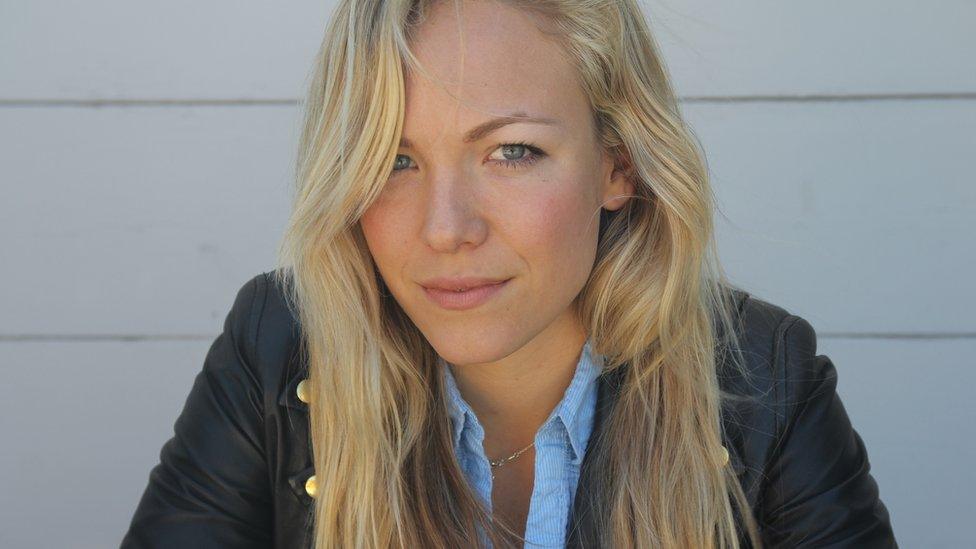
First impressions of Eline Van Der Velden suggest butter wouldn't melt. Closer inspection provokes an opposite view.
There's a glint in the eye, an unmistakable hint of mischief. But the more you judge her on appearance, the happier Eline will be.
Dutch-born Eline is an online comedian. Her calling card is fooling the public - all for social satire.
Testing our assumptions and what we consider acceptable behaviour is what she's about.
And more often than not, she'll do this under disguise.
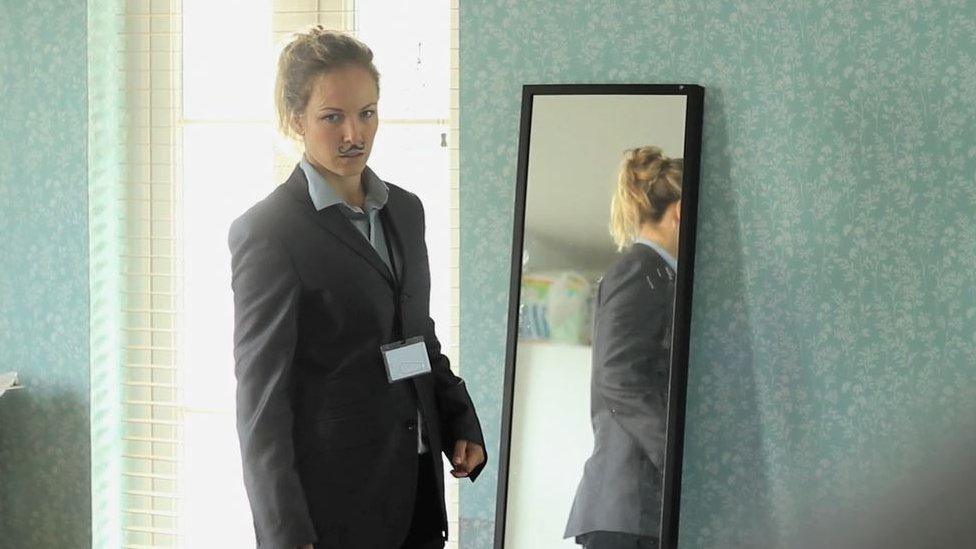
What's wrong with women dressing as men? asks Eline in The Bad News Crew's sketch Match.com
A legion of fans, mainly on YouTube and Daily Motion, has been won with Eline's series of sketches.
In The Bad News Crew, she parodied the dating game, renting and race. But her most notable shows have been Putting it Out There and Miss Holland series.
They're very different. Miss Holland is full-on comedy, with Eline in the outlandish title role.
Meanwhile Putting It Out There is a "science experiment" - though humorous nonetheless.
The series, which was picked up by BBC Three, saw Eline adopt a variety of innocent/official-looking personas. So armed, she'd go onto the street, or into a social scene, to test reactions to her off-the-wall behaviour.
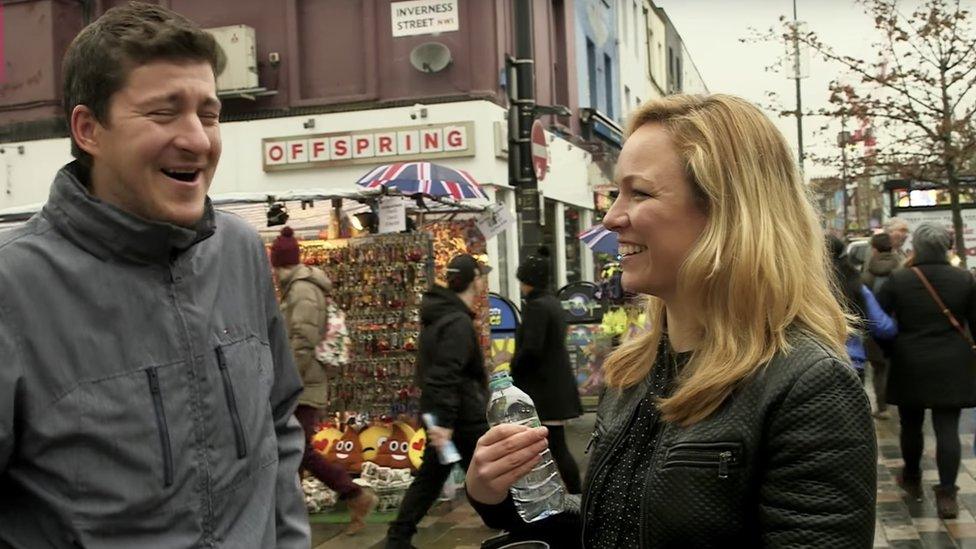
Some people see the funny side of being asked to do the outrageous
So, among the results, we unquestionably take instruction from someone in a uniform, no matter how absurd the command. And we'll hardly blink when asked to deep kiss a total stranger (Eline) - but recoil in horror when faced with (don't flinch) drinking water mixed with her spit.
And then, there's how men more readily pay attention to a woman in heels.
"Putting It Out There is looking at psyche under the microscope," says Eline. "I want to open the viewer's eyes to how they behave.
"With uniforms or even a high-vis jacket, it showed why at times of war, for example, a lot of money is spent on important outfits. They give authority.
"But with the high heels... I couldn't quite believe what I found. The danger is women will now think they have to wear heels to get anywhere, which I'd never want."
The show was made with the input of BBC Science, whose research is what we see re-enacted onscreen.
And it seems to have had had the desired effect, says Eline, or so fan feedback suggests.
"My shows are for all ages and gender but in the main it seems to appeal more to women.
"And so many come up to me or and say how I've really opened their eyes.
"I want people to stop and ask themselves if they do things because it's considered normal or it's the right thing to do.
"And learning through laughter and entertainment is clearly much nicer and more effective."
Though not immediately obvious, Miss Holland has also had its injection of academic back-up. A year and a half of it to be precise, says Eline.
Miss Holland is a complete caricature; a crude, rude, Dutch beauty queen whose mission is to explore and absorb other cultures.
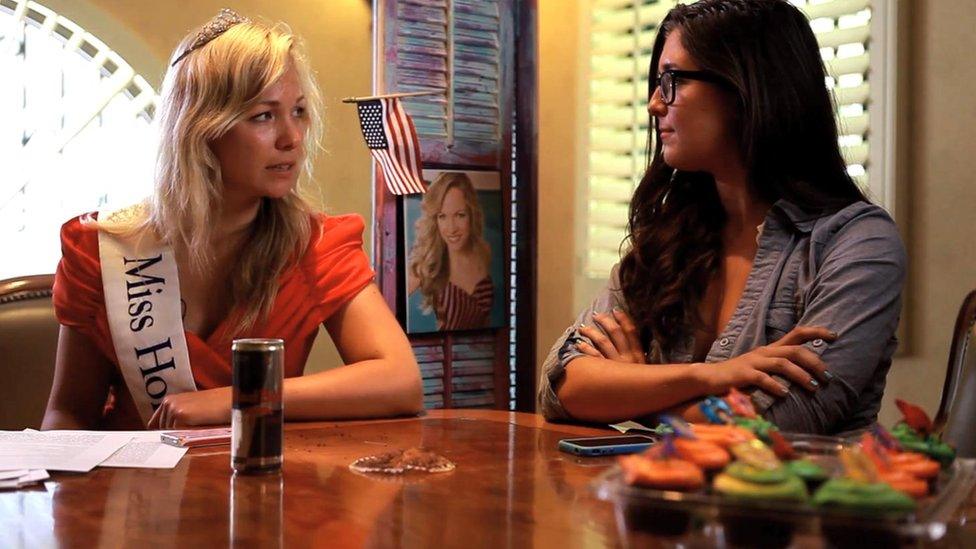
In the US Miss Holland tried to learn how to be totally American
The first series, from 2012, was set in the US where she tried to become as American possible.
Now in the UK, Miss Holland is out to become an expert in British ways. Her goal is to marry her very own Prince Harry.
Series one was a hit, winning best online comedy at the Lovie Awards, which celebrates the "European Internet community". BBC Three is carrying this second appearance with the episodes starting this week.
"Throughout the series I look at different aspects of British culture and the things that make Britain great. I put it all under a microscope and show what makes it a special country," says Eline.
"Let's all enjoy this culture, the most widely known, with the Royal family, the music and many other things. Let's celebrate that and what better than have a foreigner do that."
Again, the show relies on "normal" people's involvement.
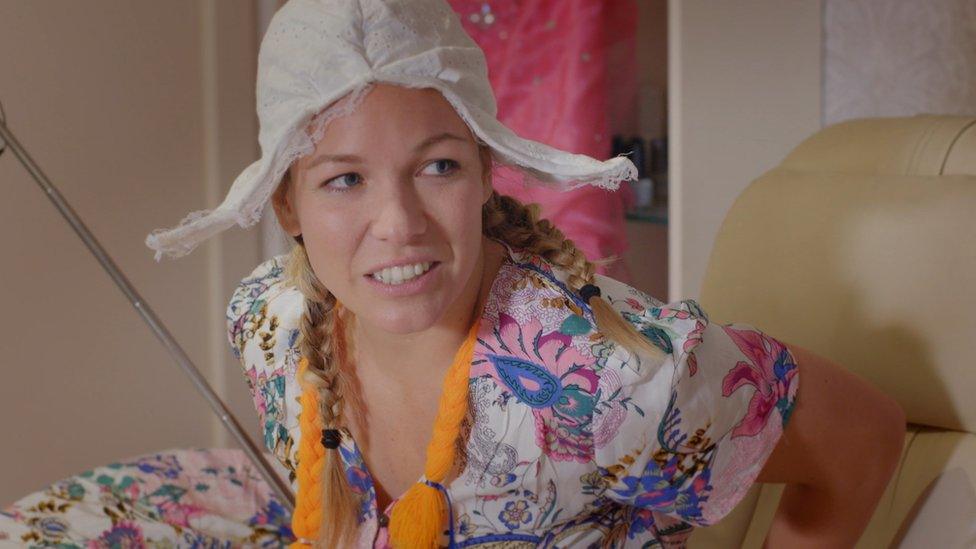
Miss Holland is in need of a makeover in series two
Miss Holland, complete in all her pageant refinery, gets on the tube and asks questions of unsuspecting passengers.
She also books appointments with former royal household staff and religious leaders. All are left bewildered by the idiocy of her questions but politely accommodate her.
That Eline has never found herself on the wrong end of major bad reaction is a minor miracle. But, says the comedian, it's because she tries to make sure they have fun too.
"I very much want people to enjoy the experience and be happy for me to broadcast what we've filmed. If they're not we won't. I think that's where I differ from Sacha Baron Cohen," she says, assuming comparisons will be drawn.
"With Miss Holland in particular, they seem to have fun. The character is clumsy and outer-worldly. The public haven't had the mickey taken out of them; it's out of Miss Holland."
The beauty queen persona seems odd but, says Eline, there's a serious point: the lengths to which women go to attain "ideal" beauty.
It's highlighted in episode one where Miss Holland gets waxed, tanned and made-up to Towie proportions.
It's a standard Eline says she can't possibly reach.
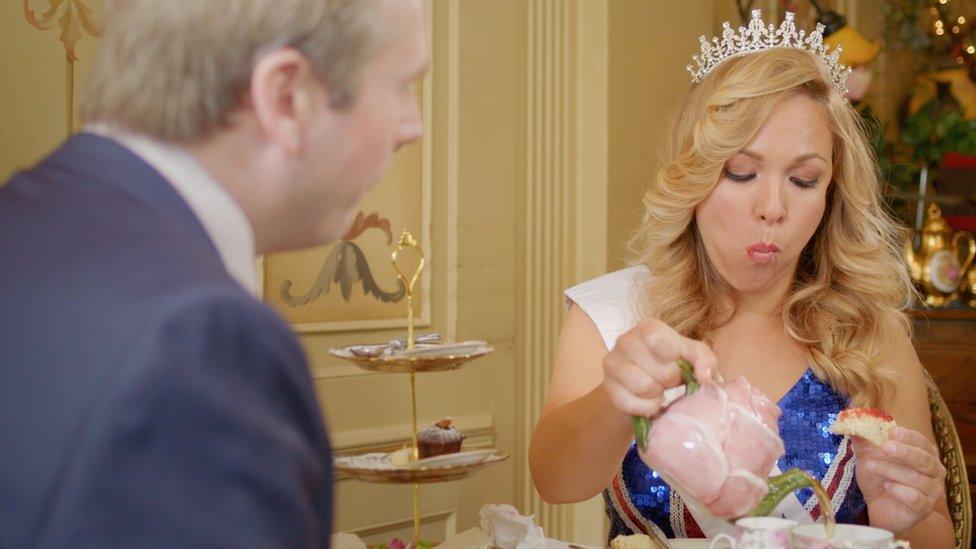
Manners need distinct improvement if she's to marry her prince charming
"I was once working in LA. My agent sent me to auditions for damsel-in-distress roles. I was told I needed to lose weight, change my hair. I just couldn't do it.
"I looked like a beauty queen gone wrong. A disaster. So with Miss Holland I thought I'd shine a light on just how difficult it is to look that perfect."
As for British social norms that annoy her, it's some of the "traditional stuff", says Eline.
Having lived in the country since the age of 14, Eline is arguably as British as a cream tea. But she'll never get over wedding etiquette dictating the bride still not getting to speak.
"It really shocks me. Some really good friends wouldn't speak, just because they didn't want to outshine their husbands.
"It's much more liberal in Holland, especially the attitude to women - they are quite strong there. Yet in the UK there have been more female prime ministers."
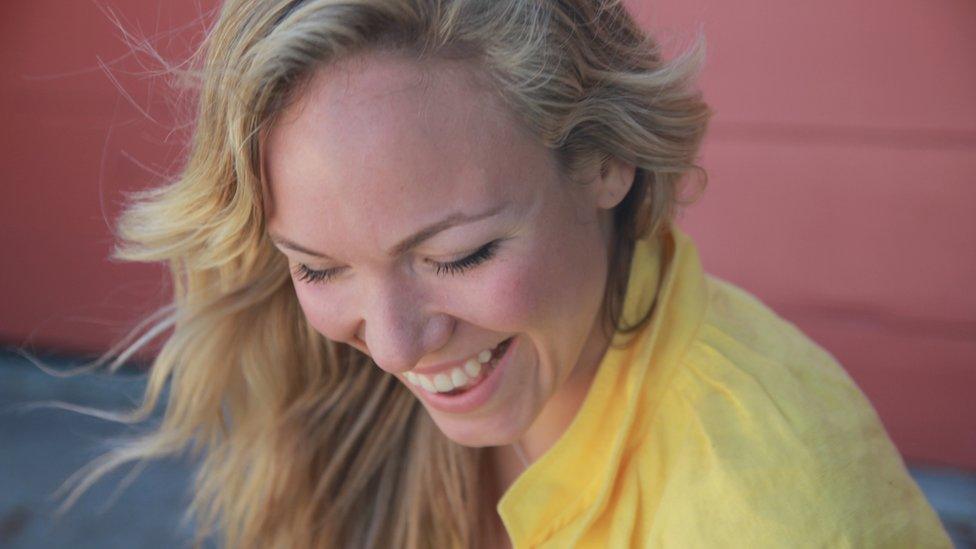
As for Eline, confidence was instilled in her from a young age. Her parents didn't stop her pursuit of "crazy" career moves - from arts to science and back.
"I often embarrass them with the things I do," says Eline. "But they just go, 'this is our daughter. This is what she's does'."
Strangely, she's often felt out on a limb: too Dutch, too blonde, too fat, too unkempt or just female. So she wants young women to follow their dreams.
Highlighting some of their challenges through her comedy will, she hopes, help. The same goes for working online, which she sais is "the future and a powerful tool".
"Women should be able to negotiate without immediately being shown the door," she says.
"Things are improving and I feel I've been passed the baton from the previous generation of women. All I can do is run as hard and fast as I can to pass it on to the next."

Follow us on Facebook, external, on Twitter @BBCNewsEnts, external, or on Instagram at bbcnewsents, external. If you have a story suggestion email entertainment.news@bbc.co.uk, external.